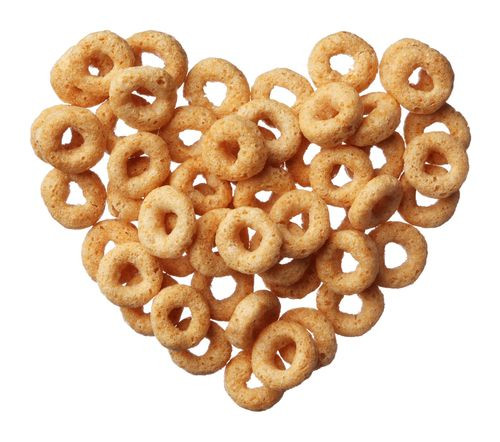Cheerios Now GMO-Free: Will General Mills Remove GMO Corn Starch, Sugar In Other Products?

The original Cheerios, packaged in the famous yellow box, will now come free of genetically modified organisms (GMO) on grocery store shelves. The movement toward the use of non-GMO ingredients in this brand gained momentum primarily because Cheerios remains one of the United States' top-selling cereals, and it is commonly one of the first solid foods fed to children. General Mills' announcement of its switch to the GMO-free cereal comes after more than a year of pressure from consumers urging the manufacturer to eliminate GMOs over health and environmental concerns.
“Original Cheerios cereal is not made with genetically-modified ingredients. Though there may always be a chance of some small amount of material coming from some other source, such as in shipping or manufacturing, none of the ingredients in original Cheerios are genetically modified," General Mills said.
The original Cheerios will now contain non-GMO corn and non-GMO pure cane sugar in its boxes. The company was able to change how they sourced and handled ingredients, which led to this non-GMO product. Cheerios is primarily comprised of grain oats — there is no such thing as GMO oats — and a small amount of cornstarch in cooking, and just one gram of sugar per serving for taste. Although the change may seem miniscule, the switch to using non-GMO ingredients can make a difference in the nutritional value consumers receive.
According to a 2012 nutritional analysis of GMO versus non-GMO corn, there were profound differences found in nutritional content. Non-GMO corn contains 437 times more calcium, 56 times more magnesium, and seven times more manganese than GMO corn. Moreover, GMO corn was found to contain 13 ppm of glyphosate — a toxic pesticide that may be carcinogenic — compared to zero in non-GMO corn.
Despite its GMO-free move in its original Cheerios products, the company still firmly believes that GMO foods are safe for consumption. To date, it has not been scientifically proven GMO ingredients are safe. Several scientific studies, such as French study published in the journal Food and Chemical Toxicology, found GMO crops led to tumor development, organ damage, and early death in mice who ate GMO corn sprayed with weed killer. These ingredients are not only considered unsafe for human and animal consumption, but they have also been linked to generating environmental problems like releasing poisons in the air. While General Mills attests to the broad consensus among major global scientific and regulatory bodies that deem GMO foods as safe, federal departments in charge of food safety in the U.S. and Canada have not conducted tests to affirm this safety but instead have taken industry-conducted research at face value without warranting further data.
GMO Inside, a campaign of national non-profit organization Green America, is thrilled with the news that General Mills is now producing original Cheerios without GMOs and is now calling on consumers to let General Mills know that now is the time to make all Cheerios non-GMO, The Sacramento Bee reports. "This is a huge victory for the non-GMO movement. I want to thank all the "GMO Insiders "for using social media to convince America's largest packed food brand to go non-GMO with a major product. History is being made today, and more food brands will rush towards non-GMO foods,” said John W. Roulac, GMO Inside co-founder and co-chair.
General Mills currently manufactures 11 other varties of Cheerios in the U.S., including the highly popular Honey Nut Cheerios, currently made with GMOs. In Europe, the cereal manufacturer sells all its products without GMOs, a sign of encouragement for American consumers who hope all Cheerios varieties will be made GMO-free. However, General Mills appears to be adamant in keeping their current products with GMOs as is. “For our other cereals, the widespread use of GM seed in crops, such as corn, soy, or beet sugar, would make reliably moving to non-GM ingredients difficult, if not impossible,” read the company's statement.
General Mills states due to the differences in the agriculture and regulatory environments in Europe and the U.S., it is quite difficult to have their Cheerios cereals in the U.S. all non-GMO. In Europe, there is a national standard for labeling non-GMO ingredients and the grain supply is different. In the U.S., nearly half of all cropland is used to grow GMO crops with 70 to 80 percent of foods in the grocery store likely to contain GMOs. The company reassures consumers they produce several organic cereals — outside the Cheerios varieties — that give consumers a wide range of non-GMO cereal choices.
Despite General Mills statement, GMO Inside suggest the next step is for consumers to pressure the company to make all their Cheerios varieties non-GMO. The recent original Cheerios victory will send a message to all food companies that there is a higher demand for non-GMO foods by consumers and more education on the potential health and environmental dangers of GMO foods, activists believe.
To learn more about GMOs, click here.
To watch a video on the GMOs in Cheerios, click here.



























